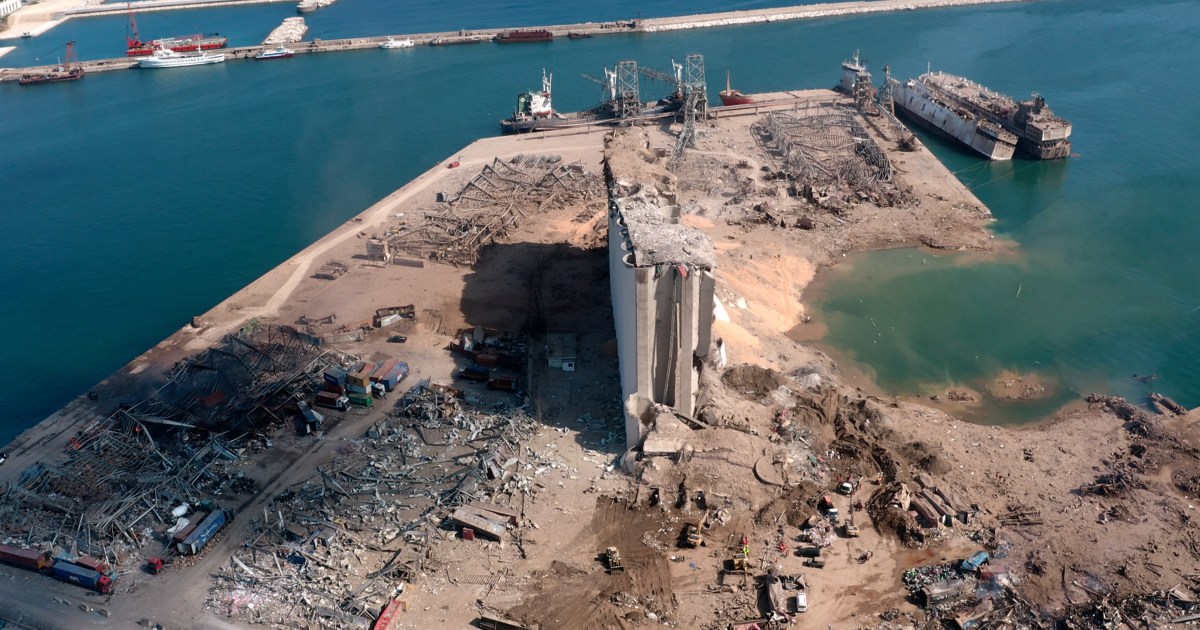Will what was presented by the emergency donors' conference - which was held on Sunday - meet the needs of Lebanon? Are the sums pledged in line with the disaster of the Beirut port bombing?
An explosion of 2,750 tons of ammonium nitrate in a warehouse in Beirut port on 4 August killed at least 163 people, injured more than 6,000, and destroyed sections of the coastal city.
Reuters quoted officials as saying that the explosion may have caused economic losses of $ 15 billion, and that many of these losses were not insured.
The blast destroyed entire neighborhoods, displaced 250,000 people, demolished businesses and knocked out essential grain supplies.
The cost of rebuilding Beirut is likely to reach billions of dollars, and economists expect the explosion will wipe out up to 25% of the country's GDP.
The explosion destroyed the only grain silo in Lebanon, a country with a population of about 6 million, that imports almost all of its wheat needs.
The Beirut explosion also destroyed residential and commercial properties, including restaurants and hotels, which sources say will likely constitute the majority of insurance claims.
How much did the donor conference offer?
According to the office of French President Emmanuel Macron, the emergency donor conference held on Sunday to support Lebanon after the Beirut bombing, received pledges of about 253 million euros (298 million dollars) in immediate relief aid.
The office added that those pledges will not be conditional on political or institutional reforms, and the Elysee Palace indicated that other pledges related to long-term support will depend on changes implemented by the Lebanese authorities.
In other words, what the donors conference provided is about 300 million dollars, while the economic losses of the explosion are estimated at 15 billion dollars.
And foreign countries demanded transparency regarding the use of aid, fearing that they would write blank checks to a government whose people describe it as "mired in corruption."
The final statement of the donors conference stated that the aid should be "swift, adequate and proportionate to the needs of the Lebanese people ... and delivered directly to the people, with the highest degree of effectiveness and transparency."
Macron - who visited Beirut on Thursday - hosted the conference via video, and in his opening speech urged the participating countries to put aside their differences and support the Lebanese people.
He said the United Nations should coordinate the international response in Lebanon. The offer of assistance included support for a credible independent investigation into the Beirut port explosion.
Advancement support
The final statement of the donors conference stated that Lebanon's partners are ready to support its economic advancement, if the leaders fully commit themselves to the reforms that the Lebanese expect.
For its part, the International Monetary Fund announced - in the wake of the donors conference - that Lebanon must implement urgent financial reforms, so that it can benefit from relief funds.
The Director-General of the International Monetary Fund, Kristalina Georgieva, criticized the "lack of political will to adopt and implement serious reforms," and said, "We are ready to double our efforts, but we need unity of purpose in Lebanon. We need all institutions to come together to resolve to implement badly needed reforms."
"Commitment to these reforms will release billions of dollars for the benefit of the Lebanese people," she added.

